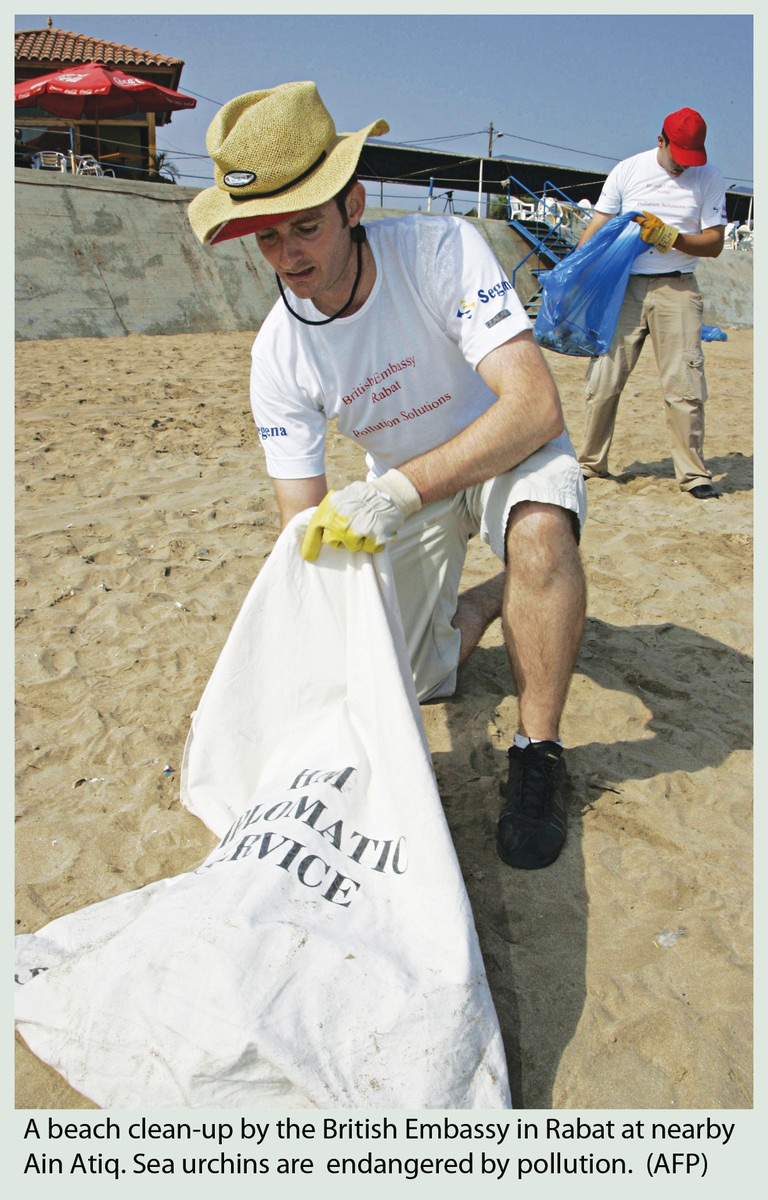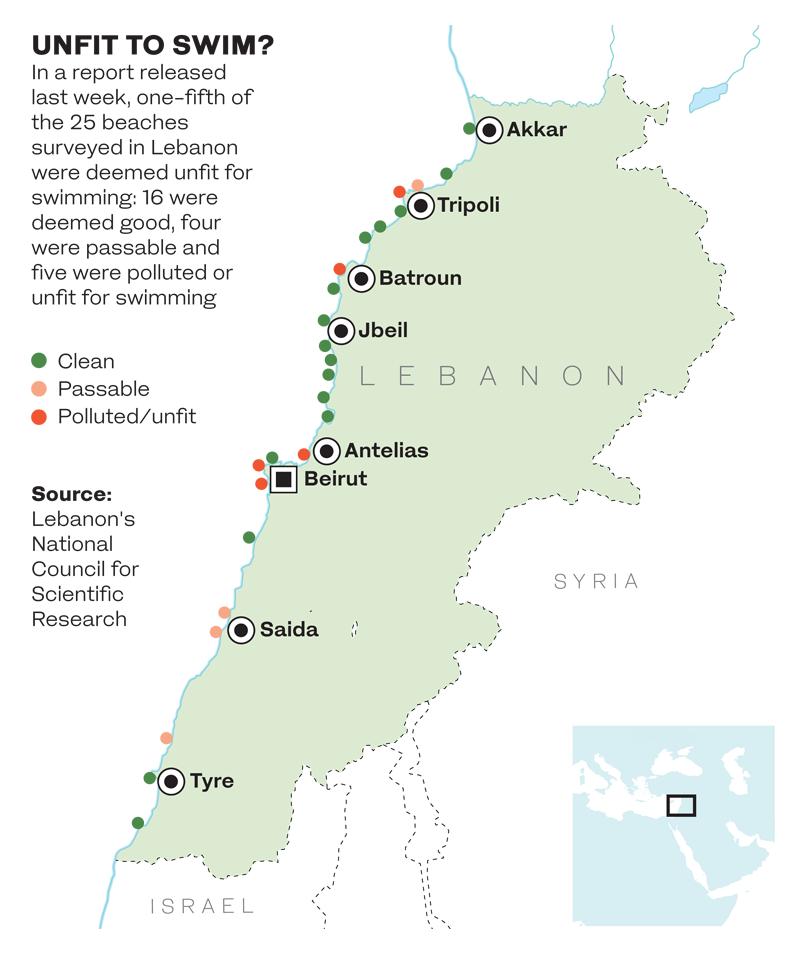DUBAI: Lebanon is getting used to making headlines worldwide for its littered beaches and streets piled high with rubbish. Now a fifth of its beaches have been declared “unfit for swimming,” in a recent report by the National Council for Scientific Research (CNRS).
At a press conference last week, Mouin Hamze, the council’s secretary-general, announced that the 30-page report had found that “five of the 25 points surveyed were described as very polluted and not fit for swimming, while a further four were deemed acceptable and 16 deemed good.”
Those areas included Beirut’s only public beach, Ramlet Al-Bayda, and beaches in Antelias, Manara and Tripoli.
“Why isn’t the government serious about the clean-up of the Mediterranean Sea in Lebanon?” asked Paul Abi Rached, the founder of T.E.R.R.E. Liban, an environmental NGO.
“The government opens sea dumps on purpose. They keep the waste-water treatment plants closed. We have between 30 and 50 wastewater treatment plants that are closed.
“It’s unacceptable to leave sewage and solid waste lying in the ocean when they’ve signed the Barcelona Convention,” Abi Rached added.
Lebanon signed up to the Barcelona Convention in 1995, along with 15 other Mediterranean countries. The convention now has 22 entities signed up “to protect the Mediterranean marine and coastal environment while boosting regional and national plans to achieve sustainable development.”
Among the priorities for the 22 signatories are to “bring about a massive reduction in pollution from land-based sources” and “protect marine and coastal habitats and threatened species.” Both appear to be a long way from being implemented.
“The only way to solve this is to declare an environmental state of emergency,” said Abi Rached, who is also president of the Lebanon Eco Movement.
“We don’t need an environmental minister who understands the environment, we need an environmentally-friendly government — it’s the only solution for Lebanon.”
Lebanon gained worldwide notoriety in summer 2015 for the garbage crisis that began when the Naamah landfill site reached capacity and was closed. For months afterwards, with no alternative site, Beirut’s streets were filled with piles of rubbish that stretched for miles.
In January this year, the crisis resurfaced as rubbish was found strewn across a Lebanese beach, believed to have been washed down by stormy weather from a nearby landfill site on the coast, although the government denies this claim. Images of the beach, blanketed in rubbish, were shared on social media, fueling anger among residents and politicians.
A toxicology report by the Lebanese Agricultural Research Institute warned of sewage waste and found high concentrations of chemical and bacterial contamination, including large levels of mercury, copper, lead and cadmium.
F ishermen across the country are also protesting about the continuous pollution that is affecting the livelihoods that they depend on.
ishermen across the country are also protesting about the continuous pollution that is affecting the livelihoods that they depend on.
“Generally speaking, I am seeing that the beach is looking filthier and filthier by the day,” local diver Abdel Fattah Amhaz told Arab News.
“No one in Lebanon is abiding by the rules and taking care of the cleanliness of the beach.
“You have joggers running and throwing their trash in the sea, and the garbage dumps across the coast are leaking into the sea,” he said.
Amhaz added that various types of marine animals that used to be seen and caught in the sea are no longer found, with the main cause being heavy pollution and its effects on the ecosystem.
To illustrate his point about the declining marine life, Amhaz said that when he was a boy, as he and his friends walked along the seashore in Beirut they would feel the sea urchin shells prickling their feet. Now there is nothing.
“They transferred the sewers to our beach to displace us. We voted for you to fight corruption, but
instead, you’re fighting us,” said Idrees Atrees, head of the fishermen’s syndicate, addressing politicians in televised remarks to local media.
Many have been unable to fish as wastewater is being redirected from central Beirut to Jnah’s seaside, which has been causing the fishermen to change fishing locations several times to avoid sewage.
While all eyes may be on Lebanon for not taking care of its seashore, reports surfaced in Morocco earlier this week about the dire garbage situation on the country’s coast, stretching from the Atlantic Ocean to the Mediterranean Sea.
Despite a 2016 nationwide ban on plastic bags, rubbish still keeps piling up on the shores across the North African country, despite authorities keeping a strict and close eye on its implementation.
An analysis of 165 beaches at the start of the summer season showed 97 percent of waters “conform with microbiological standards,” compared to 72 percent in 2002, according to the Moroccan secretary of state for the environment.













